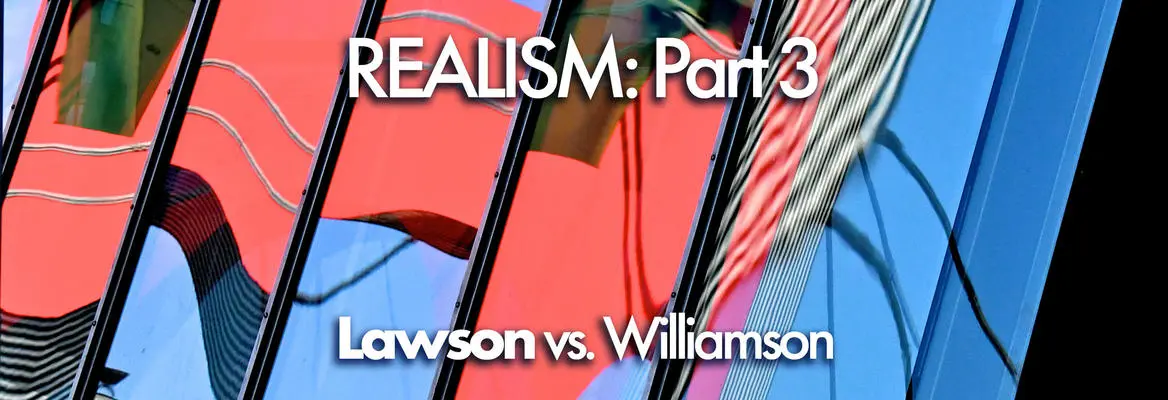While philosophers such as Timothy Williamson reassert realism as the solution to our post-truth age, the key problem of self-reference, the open-ended nature of reality and realism’s blunt approach to disagreement mean that it cannot be the future of philosophy. Post-realism, without abandoning empiricism and rationalism, makes sense of our relationship to an unknown world and provides a way forward to a more inclusive and effective means to intervene, writes Hilary Lawson.
Timothy Williamson's defence of realism is to be commended for its rhetorical punch, but the flaws in the realism project are deeper than he supposes.
At the conclusion of his article Timothy Williamson makes the political argument that realism is needed to stand up to the falsehoods and the tyrannies of power. Citing recent events in the US Presidential election, he makes the case that anti-realist philosophers are at least in part responsible for this toxic outcome. As if the trusty sword of truth is the way to down dictators and confront the misapprehensions of the mob.
It is a fine idea, but a few moments of reflection uncover its illusions. The proponents of political outlooks, be they leaders or followers, elite intellectuals or salt of the earth labourers, tend to be convinced of the truth of their outlook. Commentators alike, whether writing for the New York Times or Fox News, the Telegraph or the Guardian, are typically assured of the correctness of their view. Encouraging belief in a single objective truth seems as likely to lead to ever more conflict than to an outbreak of reasoned conversation. The sword of truth is as likely to lead to crusading wars between those who have an unswerving belief in their own rightness, as it is to lead to a utopian democracy of the good and well meaning.
The core of the issue regarding realism is not to be found in jousting over the political impact of realism but in the deep philosophical problem of self-reference, as Isabelle Thomas-Fogiel proposed in her original article to which Timothy Williamson was responding. It is this central flaw that undermines realism and the associated project of describing the relationship between language and the world.
Encouraging belief in a single objective truth seems as likely to lead to ever more conflict than to an outbreak of reasoned conversation.
Paradoxes of self-reference can seem to many to be technical logical arguments of little real significance. Instead they are found at the centre of many philosophical systems. They confounded Russell in his attempt to provide an account of mathematics. Self-reference also made a mockery of positivist definitions of truth. Most significantly (to the question of realism) however, they led Wittgenstein to abandon his attempt in the Tractatus to formulate a realist framework and to conclude that any account of the relationship between language and the world must fail. It is not a conclusion that has been effectively countered.



















Join the conversation